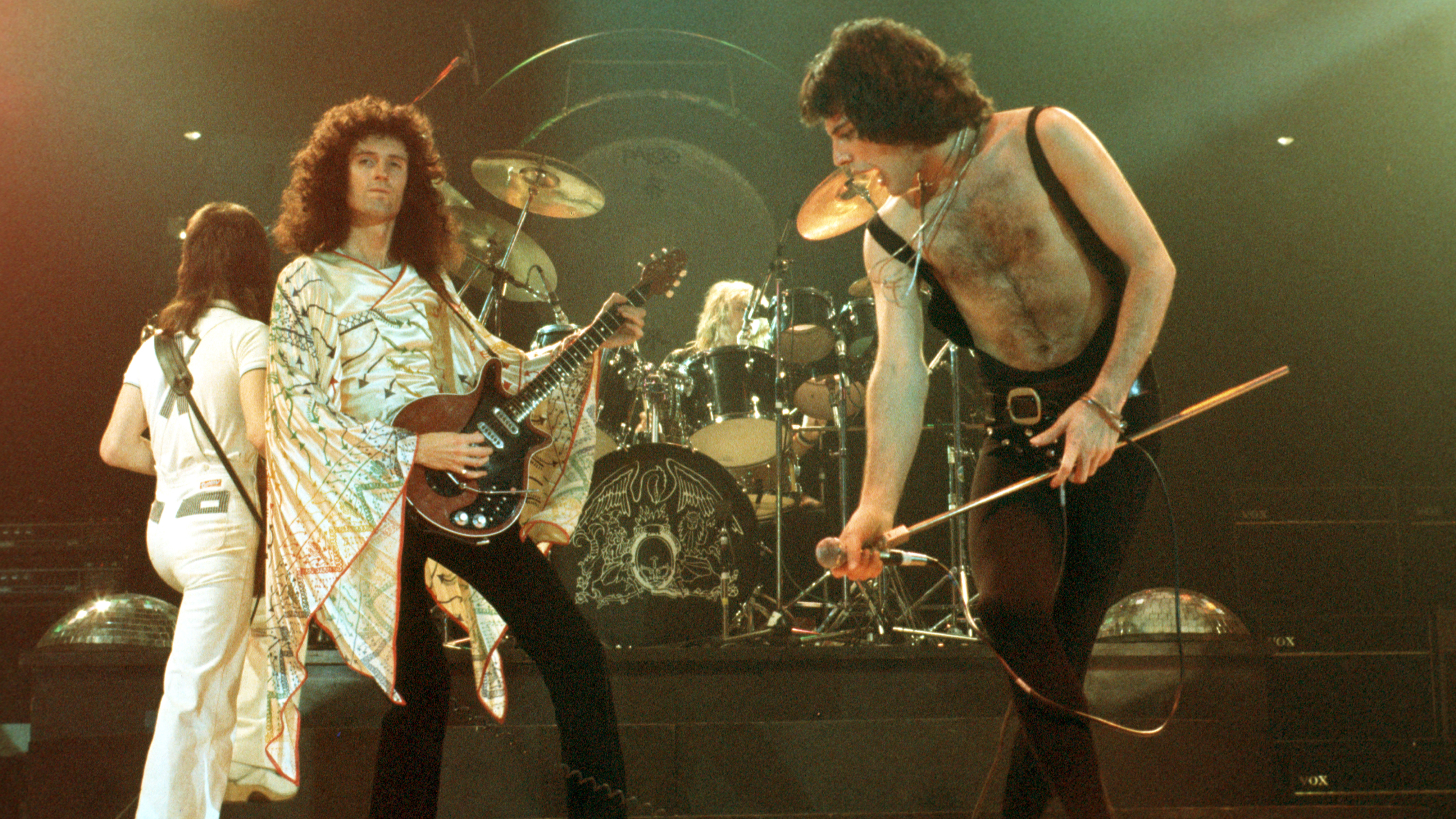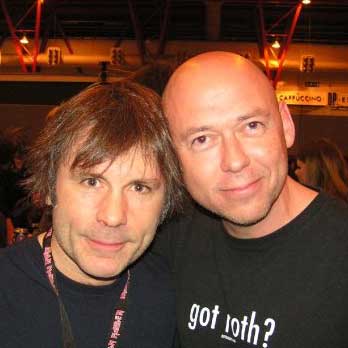“We came off stage and looked at each other in amazement, because all that singing from the audience was so extreme. And I said to Freddie, ‘Maybe we should be harnessing this kind of energy’”: How Queen created the mother of all rock anthems
“I was hoping it would catch on," Brian May said

Want all the hottest music and gear news, reviews, deals, features and more, direct to your inbox? Sign up here.
You are now subscribed
Your newsletter sign-up was successful
In 1977, the year of punk rock, Queen responded with News Of The World, an album filled with short, punchy songs – none shorter or punchier than We Will Rock You.
This is, undeniably, the greatest rock anthem of all time.
But how did the band create something so simple and effective?
In a 2023 interview with Total Guitar, Queen guitarist Brian May, the author of We Will Rock You, revealed how it was written and recorded.
“The song was born one night in Bingley Hall in the Midlands,” he said. “We were a group which was doing quite well, we had a good following, and we had this thing where people insisted on singing along to our songs. And I think we were quite irritated by it!”
Asked why the band didn’t like their fans singing along to their songs, May replied: “Because we thought, ‘People, just listen. We’re working really hard, so bloody well listen!’
“But they were unstoppable. And this particular night, they sang every word to every song, which was rather novel in those days.
Want all the hottest music and gear news, reviews, deals, features and more, direct to your inbox? Sign up here.
“I mean, I went to a Zeppelin concert and I don't remember people singing along to Communication Breakdown or whatever they were playing. When Zeppelin played, they listened. They banged their heads, and they listened. And I thought about our concerts: why don't you buggers listen instead of singing?
“Anyway, that night at Bingley Hall we came off stage and we all looked at each other in amazement, because all that singing from the audience was so extreme.”
May recalled how, in this moment, he had a change of heart and made a suggestion to singer Freddie Mercury.
“I said to Freddie, ‘Maybe, instead of fighting this, we should be encouraging it. Maybe we should be harnessing this kind of energy which seems to be happening.’ And we all agreed that this was something really interesting that we should experiment with – letting the audience be a bigger part of the show.”
With this, the seed of We Will Rock You was sown.
May explained: “I thought, what can you ask an audience to do if that audience is all crammed in together? There's not much they can do except stamp their feet and clap their hands, but they can also sing. And if they can chant, what would they chant? And with that, I could hear it in my head: ‘We will, we will rock you!’
“I was hoping that this would become something which would catch on. We would have a song which would be led by the audience. So that's why there's no drums on there – just the stamping and clapping that the four of us did.
“Very luckily, we found bits of an old drum riser lying around in the studio in Wessex in North London, which was perfect to stamp on. And with the help of [co-producer] Mike Stone, I evolved a whole business of multi-tracking with various prime delays to make it sound huge, but not echoey. There's no echo on that. So it sounds like you're in the middle of a thousand people stamping and clapping. And then we put the other stuff on it.”
May admitted he had doubts about the track.
“I was very nervous about this,” he said, “because it seemed like it was kind of over-simplistic, maybe. And I wasn't sure if it was going to sound like a proper song.
“But as soon as I heard Freddie singing it, I started to be more confident, because he sounded like a kind of rabble-rouser. It sounded like he was going to encourage the audience to do this stuff. And so it was all aimed towards getting the audience involved. It was aimed towards the live situation. And somehow it worked.”
Initially, May’s belief in this song was not shared by the band's drummer Roger Taylor.
“I remember Roger had severe misgivings about it,” May said. “And he certainly didn't want to put it at the beginning of the album.
“He said, ‘No radio station is ever going to play this! It doesn't sound like a rock song.’
"But I fought that corner. And generally I didn't win those arguments, but this time I won.
“So that was the beginning of the album. And it was also my thought that we should weld We Will Rock You and We Are The Champions together as a couple. And that worked out very well – partly because those songs both have the same end in mind, they’re both enveloping the audience and involving the audience, treating the audience inclusively – and partly because it just made such sense musically. It just worked so well.
“So that was the beginning of the album, and that was the single – the two tracks together. It was No.4 in America, a big hit all over, really.
“And this whole thing changed our lives radically. Because from that point on, we stuck to that resolution – we became a band that encouraged participation. And that's not the way we started off, but it became a great thing.
“It probably sounds all very obvious now, because everybody gets the audience to clap and sing along, but that's not the way rock ’n’ roll was in those days. And I think it was a great bolt out of heaven. Looking back, it’s a no brainer – but at the time it was a radical departure.”
May also took an unorthodox approach with his guitar solo in We Will Rock You.
“I don't think it was planned,” he said. “I just wanted to rock!
“But I did want to break that boundary as well – because everybody puts guitar solos in the middle of the song, and I didn't want to do that. I wanted this song to happen with the audience, and that would then lead me to the stage, so the guitar solo would be the climax of the song.
“That was pretty unusual at the time, and I can't actually think of another song that does that. So that was deliberate.”

Paul Elliott has worked for leading music titles since 1985, including Sounds, Kerrang!, MOJO and Q. He is the author of several books including the first biography of Guns N’ Roses and the autobiography of bodyguard-to-the-stars Danny Francis.
You must confirm your public display name before commenting
Please logout and then login again, you will then be prompted to enter your display name.